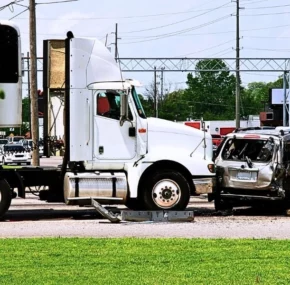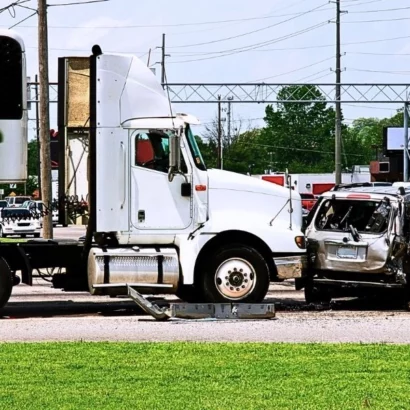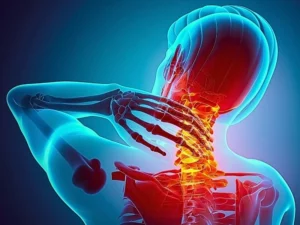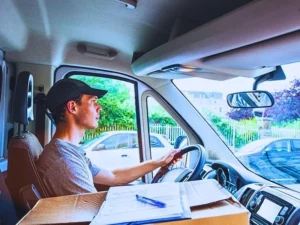Understanding how the black box can help your truck accident lawsuit in Illinois can improve your odds of recovering full compensation for your injuries or losses. A black box is an electronic onboard recording tool that monitors the trucker’s driving time. The box can offer information on the truck’s operation before, during, and after an accident.

The black box data helps corroborate eyewitness accounts and establish negligence or liability. This way, it can help you build a strong case against insurance companies. A strong case can help you receive maximum compensation for common truck accident injuries such as lacerations, head trauma, and concussions.
Truck Accident Statistics in Illinois
Illinois recorded 33,391 pickup truck crashes in 2020 and 39,357 in 2021, representing a 17.9% increase. Fatalities involving pickup trucks were 172 and 181 in 2020 and 2021, respectively. Injuries, on the other hand, were 6,853 in 2020 and 7,922 in 2021.
There were 15,837 crashes involving large trucks in 2020 and 19,029 in 2021, representing a 20.2% increase. Fatal large truck crashes tallied to154 in 2020 and slightly dropped to 147 in 2021. Injury crashes totaled 2,720 and 3,070 in 2020 and 2021, respectively.
Most Common Injuries From Truck Accidents
Truck accidents cause different types of injuries depending on the impact of the crash and the circumstances involved. These accidents often leave victims with mild to severe injuries and losses. Here’s a breakdown of these injuries:
Head and Brain Injuries
Though it can be as minor as a bruise or a mild concussion, a head injury may have life-changing effects. You need to see a doctor to determine the type of head or brain injury you sustained during a truck accident. While symptoms vary, they may include headaches, lack of concentration, memory loss, visibility issues, and sleeping problems.
Burns
A fire may spread fast following an accident, rupturing the fuel tanks and putting you at risk of burns. Burn injuries leave permanent scars on the body and may cause disfigurement or impairment of certain body parts.
Back and Neck Injuries
The small and fragile ligaments and bones in your neck and back can get injured from the impact of a truck accident. You may sustain a whiplash when your neck and head snap forward, but the torso remains in place. Though such an injury may not present symptoms immediately, it may need medical attention once you start experiencing pain.
Spinal Cord Injuries
You may sustain a spinal cord injury when your torso and lower body are partially, temporarily, or completely paralyzed due to the impact of an accident in your spine. As the body’s information superhighway, the spine relays messages from the brain to other body parts. It may take intensive adaptive devices, physical therapy, surgeries, or treatments to fix your spine if it’s injured.
Amputation and Disfigurement
Disfigurement or amputation may occur due to the impact of a truck accident. These injuries may also stem from another injury, such as burn injuries. If you suffer this kind of injury, you may need adaptive devices like prosthetics and ongoing medical treatment to function.
Internal Injuries
Even if you get out of the truck accident without head trauma or spinal injury, you may sustain serious internal injuries. The injury can occur in your ribs, torso, kidneys, pancreas, liver, spleen, or bladder. Harm to these body parts and organs can be life-threatening.
Lacerations, Bruises, and Cuts
Bruises and cuts are usually less severe, but can cause permanent injury, requiring ongoing medical care. You may sustain cuts from a truck accident when unrestrained objects, sharp metal, or shattered glass in the vehicle pierce your skin. The bruise or cut may cause a life-threatening infection or a disfiguring scar.
Why Truck Accident Victims Need to Know Their Rights
When truck accidents occur, victims have to deal with physical and emotional pain and navigate the complex healthcare sector. As a victim, you need to take an active role in your recovery and understand your rights to compensation and medical care. Knowing your rights following a truck accident in Chicago, Illinois, is important for the following reasons:
- You get to seek medical care immediately to ensure potential health issues are spotted and treated and prevent long-term health problems.
- Freedom to choose your healthcare provider to get impartial and fair care and have a say in the treatment. You can deny treatment if you are uncomfortable or have reservations regarding a particular treatment.
- Confidently decide what will happen and the treatment options available before any treatment commences.
- Ensure that insurance companies and healthcare providers follow privacy laws and keep your medical information private.
- Access your medical records to know more about your health, back up claims about the seriousness of your injuries, and establish the need for certain treatments.
- For clarity and assurance purposes and getting a second opinion on your medical condition or injury.
To ensure your best interests are taken care, you may benefit from seeking the guidance and support of a truck accident lawyer.
What Is the Black Box?
Also known as an event data recorder or electronic control module, a black box is a device that records and stores crucial data about the operation of a motor vehicle. It’s usually fitted in the cab or engine compartment of a truck.
When a truck accident occurs, investigators can use the black box data to establish the cause of the crash. They can also use this data to assign responsibility to the parties involved. As such, black boxes form part of the evidence used in truck accident claims or suits.
Purpose of a Black Box in Trucks
The black box can help determine if the truck driver violated the hours-of-service rules. These rules dictate how long a driver can sit behind the wheel. They seek to address driver fatigue, one of the most common causes of truck accidents.
When a black box records a truck’s speed, it considers the regular driving intervals before an accident. The information can help tell whether the driver exceeded the recommended speed limit. It may also determine if the trucker drove too fast for certain road conditions.
Black boxes capture information on a truck’s braking activity. As such, they can help tell the instance in which the driver applied brakes and the amount of force applied. With this information, investigators can determine whether the trucker tried to stop the vehicle before the crash and the effectiveness of the brakes in slowing it down.
A truck’s engine performance is a crucial piece of evidence in the accident investigation. Black boxes record engine-related data, including fuel consumption and RPM. They do this to help determine whether the vehicle had any problems in terms of transmission and engine performance.
Driver behavior and habits form part of the data that black boxes record. These behaviors may include whether the driver used an electronic device at the time of the accident, how long the driver had been driving, or whether he or she wore a seatbelt. They can help prove negligence and establish liability.
The truck’s position on the road before the crash can help the investigators determine the cause of the crash. Investigators can obtain this information from the truck’s black box. They can determine whether the vehicle turned or changed lanes or used the correct lanes at the time of the accident, since most large truck accidents occur off the interstate.
How It Collects and Stores Data
The black box records data from various truck parts, such as the engine and braking system. They store this information on a solid-state memory device designed to withstand the impact of a crash. The memory device can also survive any high temperatures in an accident-related fire.
Specialized black box systems can record audio from the driver’s seat, including the driver’s conversations and sounds relevant to an accident investigation. They use a separate memory device to record the audio. The audio can help accident investigators understand the driver’s decisions and actions at the time of the accident.
Black boxes are incredibly robust since they withstand extreme pressures, high temperatures, and extreme impacts. They can survive in water and extreme cold. A beacon transmitter fitted in the box helps emit signals in the event of an accident.
After a truck accident, investigators will retrieve the black box and analyze its data. They use this data alongside the truck’s maintenance and service records to understand the crash. Black box data can also help car manufacturers make recommendations and improvements on truck safety.
How the Black Box Can Benefit Your Truck Accident Lawsuit
One of the key pieces of evidence in a truck accident lawsuit is black box data. The truck’s black box can help collect crucial data and corroborate eyewitness testimony. It can also help prove negligence and liability and strengthen your case, as discussed below:
Collection of Crucial Data
Black box data often serves as evidence in truck accident cases in Chicago, Illinois. The data includes details about the truck’s operation before, after, and during a crash. It sheds light on the truck’s steering angles, brake application, and speed.
Your truck accident attorney will rely on this data to identify the events that led to the crash. The attorney will also count on the black box for insights physical evidence and eyewitnesses cannot provide. These insights can help establish the facts of your truck accident case.
Black box records can objectively support your attorney’s arguments in court. The records can also demonstrate if there were violations of traffic regulations or safety protocols. Black box records are unbiased and straightforward. The same cannot be said about witness statements.
Corroborating Eyewitness Accounts
Witnesses are often called during court proceedings to give their account of the events that led to the crash. They may explain to the court the behavior or actions of the driver at the time of the accident. However, witness testimonies may need to be verified to make them more accurate.
Black box data can help corroborate and supplement the information provided by witnesses. The witnesses may include those present at the accident scene and expert witnesses. The data can refute any claims that seem inaccurate, especially if these claims are associated with negligence and liability.
Help Prove Negligence or Liability
Proving negligence and holding an individual or entity liable for injuries or losses are usually at the forefront of a truck accident lawsuit. You need to present compelling evidence to prove negligence or hold someone liable for your injuries. Black box data can help you achieve this goal.
When a truck accident happens, the black box stores various pieces of information. These bits of data can be analyzed to determine whether the other driver adhered to traffic and safety regulations at the time of the crash. If they suggest that there was a breach of these laws, that driver may be held liable and considered negligent.
Strengthening Your Case Against Insurance Companies
Black boxes offer insurance companies real-time and objective data on the circumstances that led to an accident. Insurers can then use this data to determine the accuracy of a truck accident claim. The data may also help reduce disputes and expedite the claims process.
Since the black box data can refute or corroborate statements made by witnesses, it promotes transparency in the claims process, since lack of transparency is why truck accident claims are more complex. As a result, you can expect fairness when the insurance company evaluates your accident claim. Fewer resources and less time will be needed in the investigations.
Black box technology can help combat fraud in claims processing. It cross-references accident data with the information provided in a truck accident lawsuit. This way, the insurer can identify inconsistencies quickly, thus discouraging dishonesty and reducing fraud.







